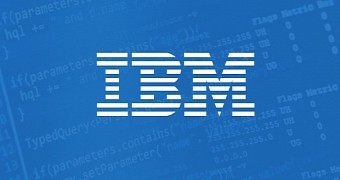The US Department of Justice has updated charges against Xu Jiaqiang, 30, a former IBM employee arrested last year for attempting to sell the source code of one of the company's software applications.
Xu, a Chinese national, worked for IBM from November 2010 to May 2014, where he occupied the position of system software developer and contributed to the company's General Parallel File System (GPFS).
The GPFS is a high-performance clustered file system used mainly in clustered cloud hosting environments and with supercomputers.
According to an updated indictment, Xu voluntarily left IBM but made a copy of the company's software before resigning.
Xu then made modifications to the GUI sections of the software, in order to hide its true source, and then sold it to various parties.
Xu tried to sell IBM's GPFS to undercover FBI agents
The accused started communications with undercover FBI agents in the spring of 2015. On March 6, 2015, Xu met with two undercover agents, posing as investors who wanted to start a large data storage company, and provided a sample of his software's source code.
The undercover agents checked with IBM, whose employees confirmed the sample was part of their proprietary code.
The undercover agents agreed to a deal with Xu, and on August 26, 2015, the suspect uploaded a copy of his entire software on servers set up by the FBI. IBM employees yet again confirmed that the software Xu uploaded was, in fact, theirs.
While working for IBM, Xu knew the software was copyrighted and that IBM provided access to the proprietary code on a need-to-know basis, for which Xu had to request access and signed a confidentiality agreement.
Xu previously sold the software to a Chinese counterpart
US authorities arrested Xu on December 7, 2015 in White Plains, New York, and charged him with one count of theft of a trade secret. During the subsequent investigation, the FBI discovered that Xu sold the software to other parties, including to people who wanted to use it for the National Health and Family Planning Commission of the People’s Republic of China.
As such, US authorities updated the simple theft charges to three counts of economic espionage and three counts of theft of a trade secret. Each count of economic espionage carries a maximum sentence of 15 years in prison, while each count of theft of a trade secret carries a maximum sentence of 10 years in prison.
"Economic espionage not only harms victim companies that have years or even decades of work stolen, but it also crushes the spirit of innovation and fair play in the global economy," said US Attorney Preet Bharara. "Economic espionage is a serious federal crime, for which my office, the Department of Justice’s National Security Division, and the FBI will show no tolerance."
Below is the Xu superseding indictment, courtesy of the US Department of Justice.

 14 DAY TRIAL //
14 DAY TRIAL // 
